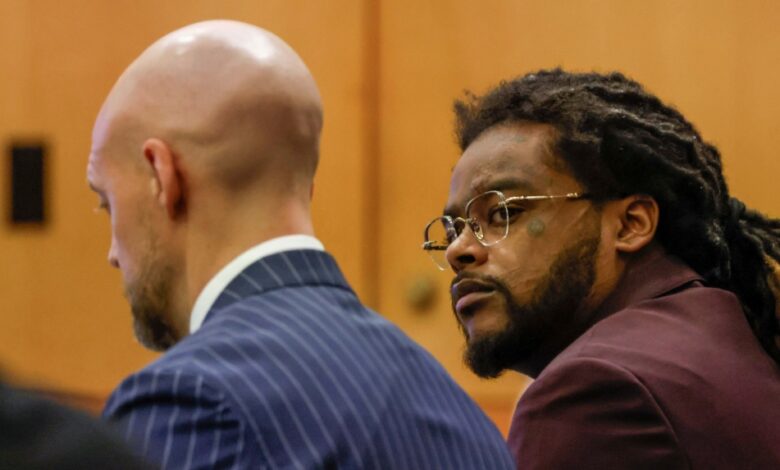Young Thug trial: Last 2 defendants not guilty of murder

ATLANTA –
After a lengthy gang and racketeering trial in Atlanta, rapper Young Thug pleaded guilty in October, leading to the conclusion of the case on Tuesday. The jury found the last two defendants not guilty of murder and gang-related charges, bringing an end to a trial that spanned nearly two years. Deamonte Kendrick, also known as Yak Gotti, was acquitted of all charges, while Shannon Stillwell was convicted only of a gun possession charge. The trial had been marred by various issues since its inception, with the original indictment accusing 28 individuals of conspiring to violate Georgia’s Racketeer Influenced and Corrupt Organizations Act.
Young Thug, whose real name is Jeffery Williams, was released on probation after pleading guilty to gang, drug, and gun charges. Kendrick and Stillwell were implicated in the 2015 killing of Donovan Thomas Jr., known as “Big Nut,” and Stillwell was also linked to the 2022 death of Shymel Drinks. The trial focused on alleged gang activities, with prosecutors presenting song lyrics and social media posts as evidence. The verdicts were a setback for Fulton County District Attorney Fani Willis, who faced criticism for her use of the state’s anti-racketeering law in this case and in other high-profile prosecutions.
Defence attorneys raised concerns about the prosecution’s reliance on song lyrics and social media posts, arguing that these were flawed pieces of evidence that painted a misleading picture of the defendants. They contended that the individuals involved in the case turned to music as a means of escaping difficult circumstances and economic hardships. The trial shed light on the rap scene in Atlanta, with Young Thug and his associates being at the center of the legal proceedings.
The case also highlighted the challenges faced by communities affected by violence and limited economic opportunities. Defence attorneys emphasized that the defendants’ actions were driven by a desire to secure financial stability rather than furthering gang-related activities. The trial’s outcome underscored the complexities of proving criminal enterprise involvement based on circumstantial evidence and witness testimonies.
Despite the acquittal of the final two defendants, the trial had a lasting impact on Atlanta’s legal landscape and music industry. Young Thug’s plea deal and the subsequent verdicts underscored the blurred lines between artistry, criminality, and social realities faced by many individuals in marginalized communities.
In conclusion, the trial’s conclusion marked a significant moment in Atlanta’s legal history, raising questions about the use of anti-racketeering laws in prosecuting high-profile cases. The case highlighted the challenges of proving criminal conspiracy and the complexities of navigating the intersection of music, culture, and criminal justice.



